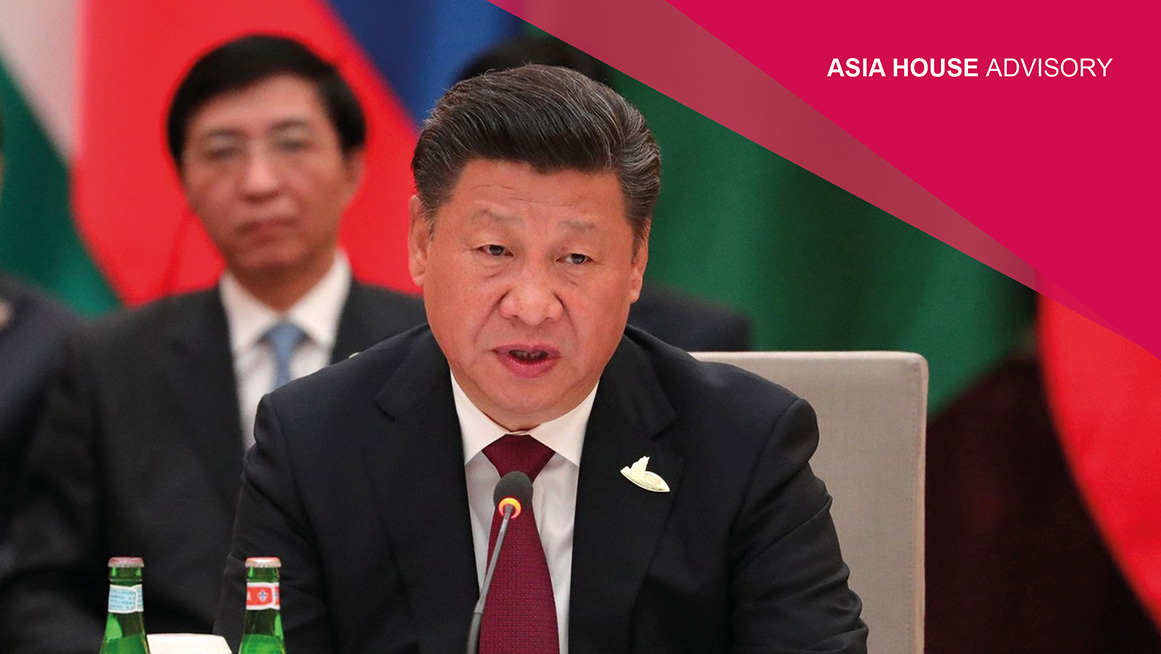Driving commercial and political engagement between Asia, the Middle East and Europe
Driving commercial and political engagement between Asia, the Middle East and Europe
Driving commercial and political engagement between Asia, the Middle East and Europe

The National People’s Congress (NPC) – the annual legislative meeting that will shape China’s policy trajectory for the year ahead – convenes on 22 May. Around 3,000 delegates representing China’s 31 provinces, municipalities and autonomous regions, as well as Hong Kong, Macau and the military, will assemble in Beijing for the congress. The session usually runs for 10 days, but is expected to be shorter this year due to the COVID-19 crisis, which also saw the NPC postponed from its traditional March date.
The NPC sees policy discussions across all areas, with votes taking place on major bills, measures and appointments. While many see the NPC as little more than a ‘rubber stamping’ body, delegates have been known to vote against the CPC – usually in protest on particular issues. However, it is very rare that the party doesn’t get its way.
Given the public health and economic impact of COVID-19, this year’s session is perhaps the most important in decades. The policy measures which emerge from the NPC will have a major impact not just on China’s economic revival, but on the global economic recovery, too.
Asia House Advisory have pulled together some of the things to watch at this year’s NPC.
 GDP target
GDP target
There is speculation that China will not issue a GDP target at the NPC, due to fears that a second wave of COVID-19 could see it missed after GDP contracted in Q1 2020. The IMF has predicted growth of 1.2 percent before a stronger rebound in 2021. Perhaps more important this year will be unemployment targets, which have stayed around 5 per cent for years. In the wake of the economic disruption caused by the pandemic, such a target may be more difficult to achieve.
 US rhetoric
US rhetoric
The government may use the session to make statements about how China will stand up to external challenges – given that the main audience for the NPC is a domestic one. But as tensions with the US appear at boiling point, how provocative Beijing chooses to be will offer an insight into the relationship’s current dynamics.
 Opening up
Opening up
The economic pressures caused by the pandemic may have knocked reform off the priority list, but the need for FDI could see an acceleration of opening up certain sectors. Financial services is one sector to watch. JP Morgan, Goldman Sachs and Morgan Chase all had successes in securing control of their respective joint ventures earlier this year, and the Phase One deal with the US mandates progress on this issue. Don’t expect moves to encourage an outflow of Chinese capital though – any movement is likely to focus on incoming investment, giving foreign companies greater access to China’s US$40 trillion financial services market.
 Positioning on climate change
Positioning on climate change
It is likely that China will want to keep climate change on the agenda, as it is an area where it is seeking to display global leadership. This is something that Chinese officials have stressed in both Asia House events and wider media narratives, so we should expect some form of announcement or positioning on this issue.
 Data privacy
Data privacy
This one is likely to be more low key, but it is likely that the NPC will pass China’s first civil code. Part of a broader reform of the legal system, the civil code will address property rights and personal rights, including privacy. While expectations as to the extent of these rights are modest, it is an acknowledgement that the party is listening to public sentiment on what is a contentious issue, with implications for China’s burgeoning digital economy.
Asia House services
As a centre of expertise on trade, investment and public policy, Asia House supports businesses operating in markets including China through bespoke advisory services and market intelligence. Find out how Asia House can help your business take advantage of opportunities in China.
